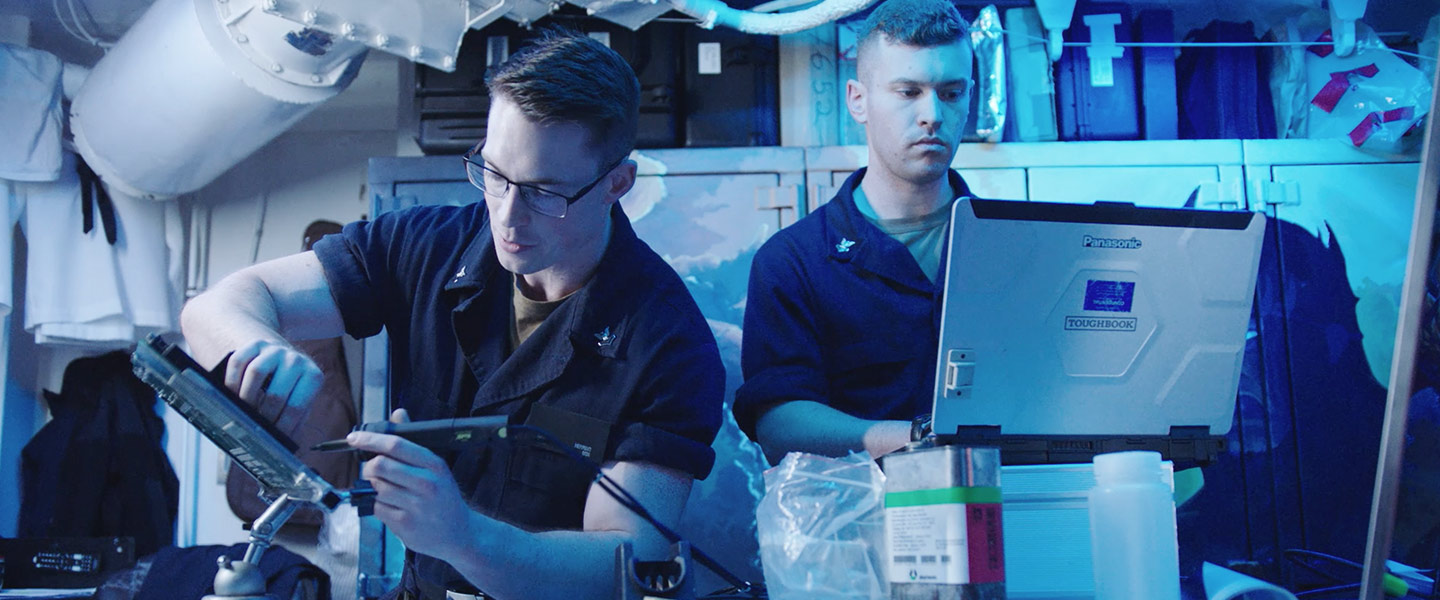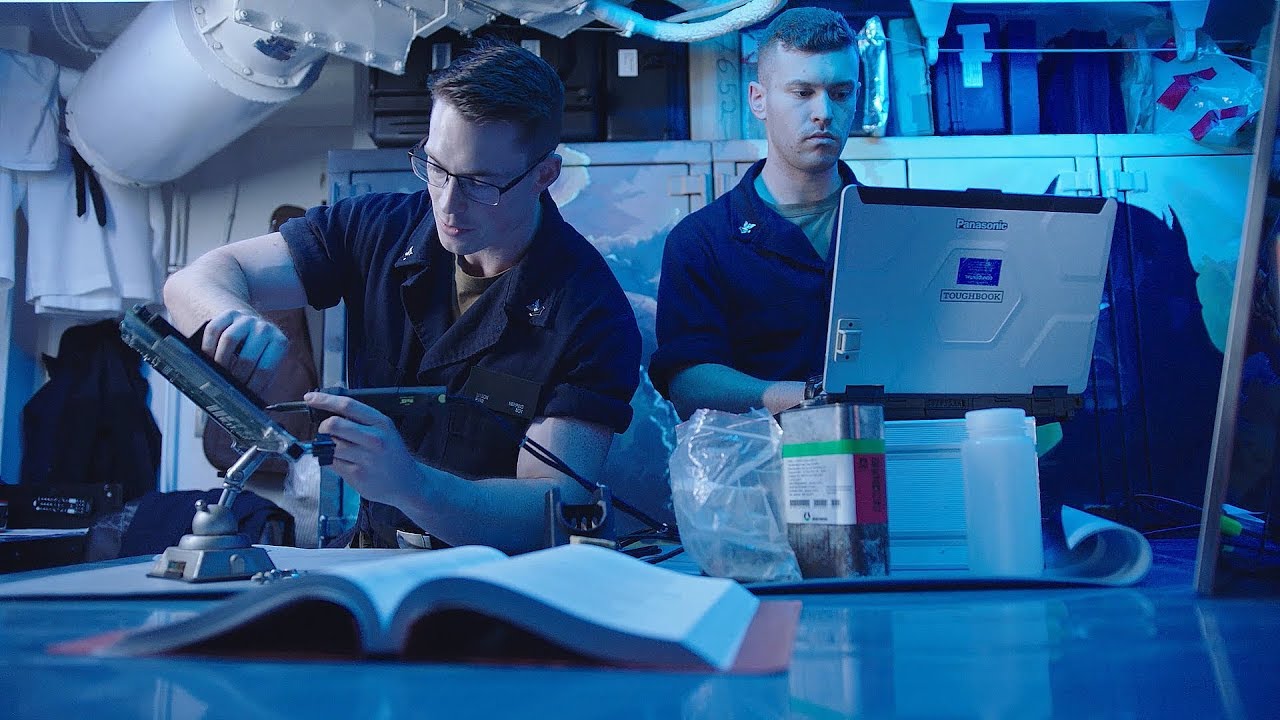What to Expect
More Information
Responsibilities
Nuclear Electronics Technicians operate and perform maintenance on the electronic systems that make the nuclear reactor on Navy ships run. From submarines to aircraft carriers, these Sailors calibrate the actual nuclear control rods to generate power aboard these ships. After your training at Nuclear Power & Prototype School, you’ll be part of a watch team that enables the fission process, which generates steam for propulsion. Few can say they get hands-on experience in a nuclear power plant just three years out of high school—you’re one of them.
Work Environment
As an Electronics Technician Nuclear, you’ll have the opportunity to work at sea or ashore. Your assignment could also place you in an intense, fast-paced environment aboard a nuclear-powered submarine or aircraft carrier.
Learn more about submarine service and life on a ship.
Training & Advancement
Upon completion of initial Recruit Training (known as Boot Camp), those pursuing an Electronics Technician Nuclear role report to “A” School in Charleston, SC, for six months. Here, they develop a good working knowledge of technical mathematics, electricity and electronics, solid-state devices, digital logic and systems, microprocessors and instrumentation and control circuits. Students learn how to interpret schematic diagrams and use appropriate test equipment to isolate and correct faults in electronic systems.
From there, ETNs move on to Naval Nuclear Power School (NNPS), also in Charleston, SC. Here they learn theory and practical application of nuclear physics and reactor engineering. The six-month course provides a comprehensive understanding of a pressurized-water Naval nuclear power plant, including reactor core nuclear principles, heat transfer and fluid systems, plant chemistry and materials, mechanical and electrical systems, and radiological control.
Following NNPS, ETNs begin prototype training in their rating specialty at one of two Nuclear Power Training Units (NPTUs) – located in Charleston, SC, and Ballston Spa, NY. This six-month course teaches the fundamentals of a Naval nuclear power plant and the interrelationship of its mechanical, electrical, and reactor subsystems. Students develop oral communications skills, obtain an understanding of nuclear radiation, and gain knowledge of the safe operation of a complex Naval nuclear power plant.
In Nuclear Operations, promotion opportunities are regularly available but competitive and based on performance.
Post-Service Opportunities
It’s also important to note that specialized training received and work experience gained in the course of service can lead to valuable credentialing and occupational opportunities in related fields in the civilian sector.
Education Opportunities
Beyond offering access to professional credentials and certifications, Navy technical and operational training for an Operations Specialist can translate to credit hours toward a bachelor’s or associate degree through the American Council on Education.
You may also continue your education through undergraduate degree opportunities like the Navy College Program and Tuition Assistance and the Post-9/11 GI Bill.
Qualifications & Requirements
A high-school diploma or equivalent is required to become an Enlisted Sailor and Electronics Technician Nuclear in the Navy. Those seeking a role as an Electronics Technician Nuclear must be U.S. citizens with successful completion of one year of algebra, and who can meet eligibility requirements for a security clearance.
General qualifications may vary depending upon whether you’re currently serving, whether you’ve served before or whether you’ve never served before.
Part-Time Opportunities
There are no part-time jobs as a Navy Reserve Sailor in this role. Go back to Careers to find other jobs that have a Reserve component. You can also find out more about what life is like as a Reserve Sailor in the Navy.
































































































































